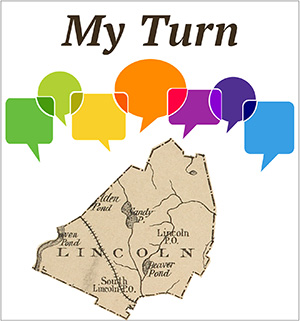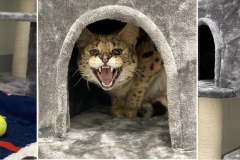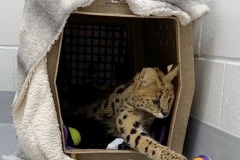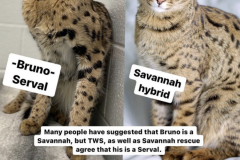 Town buildings will reopen to the public on Monday, Jan. 24, and the library reopens on Saturday, Jan. 22 after a two-week pause in service in response to the post-holiday surge in Covid-19 infections. Public health data, as well as the town’s internal testing program, indicate that cases have slowed down sufficiently to resume normal (“COVID-normal”) operations. Those using town facilities must still wear a mask in all indoor spaces. Public programming may also resume, so long as it complies with current public health protocols.
Town buildings will reopen to the public on Monday, Jan. 24, and the library reopens on Saturday, Jan. 22 after a two-week pause in service in response to the post-holiday surge in Covid-19 infections. Public health data, as well as the town’s internal testing program, indicate that cases have slowed down sufficiently to resume normal (“COVID-normal”) operations. Those using town facilities must still wear a mask in all indoor spaces. Public programming may also resume, so long as it complies with current public health protocols.
Property sales in November 2021
 26 Morningside Lane — Alexander J. Nichols to Lauren Miller and Michael Brundage for $1,005,000 (November 30)
26 Morningside Lane — Alexander J. Nichols to Lauren Miller and Michael Brundage for $1,005,000 (November 30)
148 South Great Rd. — Stephen A. Fairfax to Jun Wang and He Qiong for $730,000 (November 23)
225 Aspen Circle — James J. Faran Jr. to Kathleen and John R. Edmondston for $850,000 (November 17)
324 Hemlock Circle — Patricia Lewis Trust to Arthur J. Gleiner Trust for $346,000 (family sale) (November 15)
9 Wheeler Rd. — Peter J. Watkinson to Alexander J. Nichols and Ann Feng Cheung for $1,950,000 (November 12)
354 Hemlock Circle — Susan M. Burt Trust to Sandra N. Bradlee Trust and Henry G. Bradlee III Trust for $705,000 (November 10)
51 Todd Pond Rd. — Howard M. Wiles to Janet and Steve Niemi for $560,000 (November 5)
64 Baker Bridge Rd. — Jonathan B. Ammen to Meghan K. Lytton for $2,050,000 (November 5)
115 Trapelo Rd. plus adjoining lot — Brian A. Byrne to Jesse A. Lefkowitz and Rachel A. Neurath for $1,760,000 (November 3)
34 Round Hill Rd. — Melissa M. Brooks to Clara A. and William R. Broughton for $2,000,000 (November 3)
Not complying with multifamily housing requirement could risk millions in potential state grants
(Editor’s note: This article includes a correction to the map supplied to the Lincoln Squirrel that appeared with the January 9 story headlined “New rules ask town to permit 750 housing units in South Lincoln.” The original map misidentified the amount of land that would be subject to multifamily zoning under the new state rules; it has been corrected in that story and also appears below.)
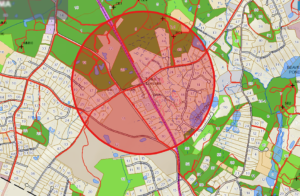
The red circle shows land within a half-mile radius of the Lincoln commuter rail station. Wetlands and buffers are indicated in shades of blue, conservation land is in green, and the beige area in the southwest quadrant is the Mass Audubon Society. The town would have to allow 750 units of multifamily housing within that area to comply with the Housing Choice Act. (Map courtesy of Margaret Olson; click to enlarge.)
Lincoln has not received grants from any of the three state funds for which it may lose eligibility under new state zoning rules, but it stands to lose out on significant amounts of money that one of the funds has already bestowed on other area towns.
The Housing Choice Act requires towns that are designated as MBTA communities to change their zoning to allow multifamily housing with a half-mile of MBTA stops or lose eligibility for grants from the Housing Choice Initiative, the Local Capital Projects Fund, or the MassWorks Infrastructure Program. The act asks Lincoln to zone 50 acres within that radius of the MBTA commuter rail station at 15 units per acre. While the town technically has enough land to comply, “the problem is that the South Lincoln overlay district doesn’t have enough buildable land for 750 units,” Planning Board Chair Margaret Olson said.
Lincoln has never applied for a grant from any of the three specified funds, though it has received funding in the past from other state programs including Green Communities, Complete Streets, a variety of regional planning grants, and most recently $400,000 under the Rural and Small Towns Grant Program for engineering and design of expanded capacity and longevity of the Lincoln Woods wastewater treatment plant, according to Town Administrator Tim Higgins.
The MassWorks program is the largest grant program for infrastructure improvements, and unlike most other programs, it does not have minimum or maximum award amounts. The following nearby towns have recently received MassWorks funds:
- Acton — $2.75 million in 2020 for affordable housing infrastructure improvements
- Harvard — $1 million in 2020 for road safety and drainage improvements
- Marlborough — $2 million in 2019 for improvements to Lincoln Street in support of a $25 million mixed-use development
- Wayland — $2.2 million in 2020 to upgrade its wastewater treatment facility and connect it to the 218-unit Alta River’s Edge housing development at 490 Boston Post Rd.
If eligible, Higgins said Lincoln could conceivably apply for future MassWorks funds to support projects including stormwater improvements that will be required to meet new federal and state requirements, septic system improvements to support whatever South Lincoln redevelopment vision the voters decide to support; Ballfield Road septic improvements (if needed) in support of a community center; water main replacements; MBTA station upgrades; and potentially roadway and roadside path improvements.
Under current state regulations, if Lincoln maintained its current zoning, it would not appear to make the town ineligible for money from Chapter 90, Complete Streets, and a number of other grant programs, Higgins said. (The Chapter 90 program provides funding each year to municipalities for capital improvements to local public roads (usually resurfacing); Lincoln is slated to receive $266,000 in fiscal 2022 from this source.)
The bigger question, Higgins noted, “is whether the town believes its vision is in reasonable alignment with the goals and criteria of the state’s [Housing Choice] program. If the town determines that the density and other requirements of the Housing Choice Act are out of alignment with town values and makes the decision to forego participation in MassWorks, we will need to find alternative funding sources to create/upgrade necessary infrastructure.”
Police log for January 9–16, 2022
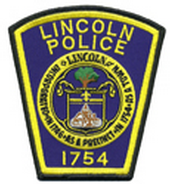 January 9
January 9
Old County Road (1:09 a.m.) — Waltham police reported they had a vehicle stopped on Trapelo Road that was involved in a domestic incident. A Lincoln officer responded; Waltham police handled the matter.
Bypass Road (8:57 .m.) — One-car crash at Route 2A and Brooks Road. The vehicle was towed from the scene; no injuries.
Police Department (3:30 p.m.) — A walk-in to the station found money in town and turned it in.
Lincoln Road (6:02 p.m.) — Caller reported that the railroad gates were stuck down. Officers responded and stood by. Keolis notified to handle.
January 10
Page Road (7:11 p.m.) — Report of credit card fraud. Report taken; investigation ongoing.
Police Department (9:45 p.m.) — A walk-in reported their vehicle was broken down in the parking lot of the station. AAA was contacted to handle.
January 11
Boyce Farm Road (11:22 a.m. and 4:35 p.m.) — Office delivered court paperwork to a resident who was not at home on the first attempt.
January 12
Hanscom Drive (7:48 a.m.) — Hanscom Security Forces reported a party with an active warrant attempting to get on the base. David Hulbert, 31, of Plymouth was arrested on a warrant from Lawrence District Court for traffic offenses. He was brought to Concord District Court.
Boyce Farm Road (9:50 a.m.) — A party came to the station to speak with an officer regarding a civil matter. An officer explained their legal options.
January 13
Hanscom Vandenberg Gate (1:05 a.m.) — Hanscom Security Forces requested an officer to assist them with a possible intoxicated driver. Security Forces had the party in custody and wanted to use Lincoln PD’s breath test instrument.
Lexington Road (12:59 p.m.) — Caller reported a dog being aggressive in the area of Flint’s Field. Officer responded but the dog was no longer in the area. Message left for the dog officer.
January 14
Twisted Tree Café (2:36 p.m.) — Caller reported employees were dumping trash into the Wells Road dumpster. Officer responded and spoke to the manager and advised them of the complaint. It was a training issue with the staff.
January 15
Nothing of note.
January 16
Nothing of note.
Correction
 In the January 18 News Acorns, the Zoom registration link for the LincFam dance party was incorrect. The correct link is here. The original post has been updated.
In the January 18 News Acorns, the Zoom registration link for the LincFam dance party was incorrect. The correct link is here. The original post has been updated.
News acorns
Free Covid-19 PCR testing available
The Town of Lincoln will continue to provide free Covid-19 PCR drive-through testing at the Pierce House on Wednesday, Jan. 19:
- 3:30–4 p.m. — seniors (age 60+). Please call the Council on Aging & Human Services at 781-259-8811 to schedule a time.
- 4– 6 p.m. — all ages. Advance registration is required; registrations can be completed online here.
More testing dates will be added as needed. This testing program is not for those already diagnosed with COVID (even a positive home rapid test). Please follow public health isolation protocols and the guidance of your primary care physician. This program is for Lincoln residents, employees, and school children who:
- have symptoms concerning for COVID-19
- have been identified as a close contact of someone with COVID-19
- may have been exposed to COVID-19
- have traveled recently
At your scheduled time, please pull up to the main entrance to the Pierce House on the back circular driveway). Clinic volunteers will pass materials through your car window for you to self-swab and package your sample for collection. Results are normally available within 36 hours via email. If you have special needs or require assistance, please email Fire Chief Brian Young at brian.young@lincolntown.org.
Virtual concert/dance party for young kids
Join LincFam (the Lincoln Family Association) and Kat Chapman for a virtual concert and dance party on Saturday, Jan. 22 at 10 a.m. Click here to register for the event. To join LincFam, follow these directions to create a profile on the Tinyhood platform, which offers parenting classes and information. If finances prevent you from joining, please log into your Tinyhood account and click the “Pay as You May” membership option.
Mass Audubon names new regional director
Mass Audubon has named Scott McCue as its new Metro West Regional Director, where he will have oversight of the wildlife sanctuaries Broadmoor in Natick, Drumlin Farm in Lincoln, Habitat Education Center in Belmont, and Waseeka in Hopkinton. He succeeds Renata Pomponi, who has been promoted to Senior Regional Director for the statewide conservation organization’s Metro Boston wildlife sanctuaries and programs.
McCue brings substantial experience in nonprofit management and education leadership to his role with Mass Audubon. He served as Chief Operating Officer and Dean of the Sposato Graduate School of Education until 2020 and, before that, he led a grade 6–12 grade public school in Boston. He’s also worked with New England Forestry Foundation.
“Opera for Everyone” on Saturday
Watch the comic opera “Don Pasquale” by Gaetano Donizetti on Saturday, Jan. 22 at 2 p.m. via Zoom with opera lecturer Erika Reitshamer. Click here to join the Zoom meeting (meeting ID: 859 3645 9225, passcode: 958308). Sponsored by the Friends of the Lincoln Public Library.
“Red Alert for the Planet”
On Thursday, Jan. 27 at 7 p.m., MetroWest Climate Solutions will host a free webinar, “Red Alert for the Planet,” with Phil Giudice, who has 45 years of experience in the energy industry as a geologist, entrepreneur, executive, board director and energy official in state and federal roles. Most recently, Giudice served as Special Assistant to the President for Climate Policy during the startup of the Biden-Harris administration. He’ll synthesize the results of two weeks of intense negotiations, describe why the UN Climate Change Conference (aka COP26) was important, and discuss where the U.S. will go from here. Click here to register.
Corporate sustainability expert Remke van Zadelhoff will serve as the Q&A moderator. As the founder of Good Clout Consulting, she helps small and medium-sized companies drive and scale positive social and environmental impact. She is also co-founder of the Weston Sustainability Action Group (SWAG).
MetroWest Climate Solutions is a local partnership of organizations and congregations including First Parish in Wayland, First Parish Church in Weston, First Parish in Lincoln, the Congregational Church of Weston, SWAG, and a growing list of communities and individuals.
Donate to gift bag drive for domestic violence roundtable
Each February, the Sudbury-Wayland-Lincoln Domestic Violence Roundtable collects items for Valentine’s Day and fills gift bags for women, men and children temporarily living in local domestic violence shelters and transitional housing programs: REACH Beyond Domestic Violence, The Second Step, and Voices Against Violence. The bags are decorated by the children from Sudbury Extended Day. Due to Covid 19 restrictions, we will not be inviting donors to join us this year in assembling the gift bags. Gift cards for CVS, Target, Market Basket, gas etc., are appreciated. Other useful items:
- For mothers and teens — full size bath products, fuzzy socks, cosmetics, nail polish, hair products, journals, etc.
- For children — playing cards, art supplies, small toys, small stuffed animals, model cars, educational items.
- For babies — toys, rattles, baby cups, baby socks, bibs, baby body products.
In past years, the Roundtable has provided as many as 125 bags for families in shelter and transitional housing. If you’re interested in contributing to the Valentine’s Day collection and have questions, please email info@dvrt.org. Donations may be left in the collection baskets provided at Sudbury Wine and Spirits in the Rugged Bear Plaza (410 Boston Post Rd., Sudbury) or at Spirits of Maynard (4 Digital Way, Maynard next to Market Basket). Collections will start on January 22 and end on February 5.
My Turn: Jason Lee throws hat in ring for Water Commission
- A PhD in social psychology from University of Michigan (to give me insight into the social dynamics that are part of any group)
- A decade working as a researcher and counsel for Congress in Washington, D.C. (back when there was a little more willingness to reach across the aisle for the common good)
- I have been a senior member of teams that determined and managed funding of health care research supported by the Robert Wood Johnson Foundation and the Assistant Secretary for Planning and Evaluation of the Department of Health and Human Services (this should help with a significant part of the role, which entails making decisions about scoping and awarding grants and evaluating grantees’ performance to help accomplish mission-driven work).
- I currently direct a forum of individuals from diverse healthcare companies to develop standards for a global hospital enterprise architecture (“plays well in groups”).
Thank you for your vote! I hope we have a chance to say hello some day.
Sincerely,
Jason Lee
54 Conant Rd.
jasonslee.phd@gmail.com
“My Turn” is a forum for readers to offer their letters to the editor or views on any subject of interest to other Lincolnites. Submissions must be signed with the writer’s name and street address and sent via email to lincolnsquirrelnews@gmail.com. Items will be edited for punctuation, spelling, style, etc., and will be published at the discretion of the editor. Submissions containing personal attacks, errors of fact, or other inappropriate material will not be published.
Road salt in Lincoln: How much is enough?
 Road salt has been a hot topic of discussion on LincolnTalk recently. How is it used to treat Lincoln’s roads? How much salt is in town water? Is it harmful for the environment?
Road salt has been a hot topic of discussion on LincolnTalk recently. How is it used to treat Lincoln’s roads? How much salt is in town water? Is it harmful for the environment?
Lincoln’s Department of Public Works, like that in most other U.S. cities and towns where it snows, have been spreading salt crystals on roads for decades. Road salt (sodium chloride, the same chemical as table salt) lowers the freezing point of water, so ice and snow containing dissolved salt will melt at colder temperatures, resulting in roads that are wet rather than slippery and thus improving safety for vehicles.
About four or five years ago, Lincoln began applying a thin coating of salt water (brine) on roads before an anticipated storm, which appears as thin white stripes. This prevents ice and snow from immediately adhering to the roadway and “breaks that bond,” DPW Superintendent Chris Bibbo said. Pre-treating roads with brine means that less road salt is needed during and after the storm.
In recent weeks, several residents have shared photos on LincolnTalk of what appeared to be heavy coatings of rock salt on some town roads. Around the same time, The New York Times and The Washington Post published stories about a study in the scientific journal Frontiers in the Ecology and Environment titled “Road salts, human safety, and the rising salinity of our fresh waters.” Road salt can damage plant life when it drains or plows push it to the side of the road, and too much sodium in drinking water over a period of years can be harmful to human health.
In the 1980s, there was enough concern over road salt that the amounts used in Lincoln were reduced, and signs appeared at the town line on some roads noting that “minimum salt is used in Lincoln” as a warning to drivers that the road they were on might suddenly get more slippery. But problems arising from under-salted roads caused the pendulum to swing back the other way.
“Some roads were just rutted ice in a particularly bad winter,” Water Commissioner Ruth Ann Hendrickson said. There have been at least two deaths in recent years after car accidents involving icy roads. George Elder died after his car skidded on Sandy Pond Road, according to the Boston Globe article published on March 4, 1984. There was another accident on icy Moccasin Hill where the driver was badly hurt, “and it really triggered people to say we need to have more” salt, she added.
How much salt does the DPW use? That depends on the weather and road conditions. “We try and use the least amount of material possible during winter storm events while doing our best to provide a safe transportation network,” Bibbo said. “Most winter storm events provide different sets of challenges and therefore require different treatment options. For example, a fast-moving snowstorm typically requires a different strategy than a rain-to-freeze event. Storms that produce mostly snow typically require more of a plowing technique than treatment. The weather conditions that we had in mid- and late December were challenging, with rain and mist repeatedly freezing on the roads.”
On Christmas Day, there was light snow and rain while the temperature hovered around freezing, and police reported several car accidents that morning. On January 5, while Lincoln didn’t see particularly hazardous conditions, a flash freeze caused numerous accidents in central and western Massachusetts despite road treatments. “I’ll tell you that I can speak for all our snow and ice managers that I’d rather get a foot of snow,” state Highway Administrator Jonathan Gulliver was quoted as saying.
Another variable is the ratio of sand to salt used on a given day. The DPW has piles of both (though the salt is covered, as required by the DEP), and the department decides what mixture to use for each weather event, Bibbo said. A higher proportion of salt is needed for icy conditions, whereas snow calls for less salt but more sand to aid in traction.
Occasionally there’s an accidental release of a large amount of the salt/sand mixture in one spot, “but we obviously try to avoid that at all costs,” Bibbo said. The DPW is looking into purchasing calibration equipment to more precisely control the rate at which the material is released as trucks drive over roads. The rate is now manually controlled by DPW crews based on their experience and road conditions, he added.
Asked about the use of road salt in environmentally sensitive areas, Bibbo said, “We don’t do anything different on roads near wetlands.” Roads are treated differently only according to traffic volume and speed, so main roads like Route 117 and Route 136 will get more total sand and salt. “The more minor roads typically may not be treated at the same frequency as the major roads, but all roads typically get treated,” he said.
Sodium in town water
The Lincoln Water Department tests untreated water from Flint’s Pond and the well on Tower Road (which provides about 30% of town water) once a year. The most recent water quality report shows that sodium levels ranged from 14.1 to 54.5 milligrams per liter or parts per million (ppm) in 2020. Unlike with some other chemicals and bacteria, there are no regulatory limits on sodium in drinking water, but the state DEP’s Office of Research and Standards guideline (ORSG) is 20 ppm.
The U.S. Environmental Protection Agency also has nonenforceable guidelines for secondary maximum contaminant levels (SMCLs) for various contaminants; exceeding those levels can cause cosmetic or aesthetic effects in drinking water. The SMCL for sodium is 250 ppm.
Interestingly, Lincoln’s higher 54.5 ppm sodium concentration is in water from the well, not Flint’s Pond, which abuts a portion of Sandy Pond Road, according to Darin LaFalam, Water Department superintendent. This could be due to mineral deposits in the Tower Road groundwater, he said.
“Detected levels of sodium are well within recommended limits. Nonetheless, people restricted to sodium intake of 500 mg/day due to health issues such as high blood pressure, heart disease, or kidney failure should discuss with their doctors whether to drink Lincoln water,” the town’s 2020 report notes.
For healthy Americans, the Centers for Disease Control and Prevention recommends consuming no more than 2,300 mg per day of sodium. In comparison, a liter of water from the Lincoln well contained a maximum of 54.5 mg in 2020. More than 70% of dietary sodium comes from processed and restaurant food, with 14% from naturally occurring sources and 11% from salt added during cooking or at the table.
Water from the well and pond water is not tested at different times of year, so it’s impossible to know whether sodium levels vary by season (for example, whether there’s more in the winter from road runoff into the pond). It was not immediately clear whether sodium levels in Lincoln’s drinking water have been steady, rising, or falling over the years.
“We will put this on the next Water Commission agenda to discuss whether there’s anything useful we can do. We need to take our time to understand the whole area of salt in groundwater,” Hendrickson said.
My Turn: Adam Hogue is running for Select Board
(Editor’s note: Hogue will compete for the open seat on the Select Board with Jim Hutchinson, who declared his candidacy earlier this month.)
Dear Lincoln community,
I am pleased to announce my candidacy for the open seat on the Board of Selects. I want to start by thanking James Craig for his years of service to the town.
Since moving to Lincoln nine years ago, I have been a very active member of our community. I have enjoyed helping to plan our Veterans Day events and our Fourth of July run, along with my involvement in other town events. I have also been a member of the School Committee for the last few years and serve on the Capital Planning Committee.
I want to serve on the Select Board because I want to bring positive change to Lincoln along with new ideas. While serving on our town committees, I have learned that we need fresh ideas to make our town even better while being fiscally responsible to the taxpayers of our town.
I look forward to a great campaign and meeting everyone on the campaign trail. I hope I can earn your vote!
Adam M. Hogue
50 Lincoln Rd.
“My Turn” is a forum for readers to offer their letters to the editor or views on any subject of interest to other Lincolnites. Submissions must be signed with the writer’s name and street address and sent via email to lincolnsquirrelnews@gmail.com. Items will be edited for punctuation, spelling, style, etc., and will be published at the discretion of the editor. Submissions containing personal attacks, errors of fact, or other inappropriate material will not be published.
Bruno the serval, minus his bad leg, heads to a sanctuary
Bruno the serval cat is on his way to his forever home in Minnesota after successful surgery to amputate his right hind leg, which was broken in two places when he was rescued in Lincoln earlier this month.
Bruno was captured by workers from the MSPCA/Angell Memorial Hospital on January 4 in the garage of Martin Pierce and Mary Jo Haggerty on Partridge Lane after their Deerhaven Road neighbor, Vic Saleme, called in the alert. The thin, limping cat had been spotted several times in the same neighborhood in previous days.
Because of the pain he was experiencing, surgeons amputated his broken leg on January 12 and also neutered him (cats of all sizes adapt very well to having only three legs, the MSPCA noted). While he was awaiting surgery in his Boston enclosure, he enjoyed playing with balls and other toys (even gathering them into his bed at night), though he slept with his injured leg dangling out of his house because it was painful for him to bend or put weight on it. The MSPCA’s Instagram feed has a dedicated Bruno story with lots of photos, videos, and information based on questions submitted by users about Bruno and servals in general.
Servals are wild animals native to sub-Saharan Africa. The MSPCA has speculated that Bruno was acquired illegally as a pet or to breed Savannah cats (a cross between a serval and a domestic cat), and he either escaped or was abandoned when he became too much to handle. They emphasized that servals do not make good pets and are illegal to own or breed. Savannah cats are also illegal in Massachusetts unless they are at least four generations removed from the serval ancestor.
“Bruno’s story makes us both sad and mad,” says the Bruno page on the website of the Wildcat Sanctuary in Sandstone, MN, which reached out to the MSCPA to offer assistance when they heard Bruno’s story. “As more and more people believe that servals, bobcats and hybrids can be great pets, we’re seeing reports all over the country of ‘escaped’ exotics. These cats can’t survive on their own. Many have been declawed. All see humans as a source of food. Bruno is the poster child of the horrible things that can happen when they escape. We don’t know if he was hit by a car, but the breaks in his rear leg are extensive and could be months old. Can you imagine this poor cat trying to survive a bitter winter with a broken leg?”
Experts from the sanctuary confirmed that Bruno is a full-blood serval and not a hybrid.
“Not only will Bruno live out his live at a sanctuary that offers him a natural and safe habitat with heated, indoor buildings, but is going to a place that shares the MSPCA’s values: that wild animals do not exist for our entertainment,” Kara Holmquist, director of advocacy for the MSPCA, said in a statement.
Bruno, who is about a year old, was very thin when he was captured. Since X-rays revealed his injury was several months old, it’s a bit of a mystery as to how Bruno survived in the New England woods with his painful leg. MSPCA spokesman Rob Halpin speculated that he may have foraged for scraps or handouts or perhaps hunted for small rodents and/or birds “to the extent that he could.”
Handouts were undoubtedly a big reason the serval hung out in the Lincoln neighborhood for a while. Saleme fed him Tyson chicken nuggets — and when Tyson saw the story, they FedExed him a dozen two-pound bags of nuggets packed in dry ice (see photo in gallery below).
After Bruno first came to the MSCPA, the organization set up a fund for donations to defray costs of his veterinary care, and animal lovers opened their wallets. “We’re happy to report that about $12,000 has come in from donors across the state. That’s far more than the $5,000 needed for his surgery so the balance will stay in a restricted account called Pet Care Assistance, which meets the medical needs of homeless animals in our shelters and is never used for things like salaries, building maintenance, etc.,” Halpin said.
The Wildcat Sanctuary also welcomes donations for general purposes or to sponsor a cat (though it’s unclear whether you can choose a specific animal by name).
Bruno will join 15 other servals and many more big cats at the sanctuary (go to this page and click on “Serval” to see photos). On January 16, the organization posted on its Facebook page about Bruno’s journey to Minnesota. “We will definitely do a more comprehensive video all about his surgery, his journey home, and how he was doing when he’s safe at his forever home at the Wildcat Sanctuary,” they wrote. “For now, all focus is on getting that little boy home safely.”
